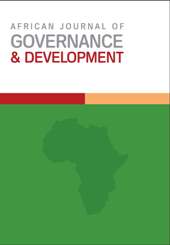Towards a Conceptual Framework for the Social Dimensions of Sustainable Development
Main Article Content
Abstract
Scholars generally try to make sense of complex phenomena such as sustainable development (SD) by constructing conceptual frameworks. Such frameworks are intended to reduce complexity by mapping associated issues, components, dimensions and properties. This demarcation process entails arranging variables, concepts and constructs into groups that are internally homogeneous but distinct from other groups. Conceptual frameworks are indispensable in scholarly inquiry, since they enable one to explicate the meaning of concepts by mapping out their dimensions. Inquiry into SD is generally constrained by the specific meanings ascribed to the highly polemical and multidimensional notions of sustainability and development, as well as the social, environmental and economic dimensions thereof. Contexts and applications can vary widely in terms of their objectives, scope and impact. The purpose of this article is to develop a conceptual framework for the social dimensions of SD by means of content analysis and the Delphi method. The findings confirm and accentuate the multidimensional nature of social sustainability. By providing a structured, scholarly framework for teaching and research, the novel conceptual framework might guide scholars, policymakers and practitioners to gain a more comprehensive and nuanced understanding of the social dimensions of SD than previously.
Article Details

This work is licensed under a Creative Commons Attribution-NonCommercial-NoDerivatives 4.0 International License.
